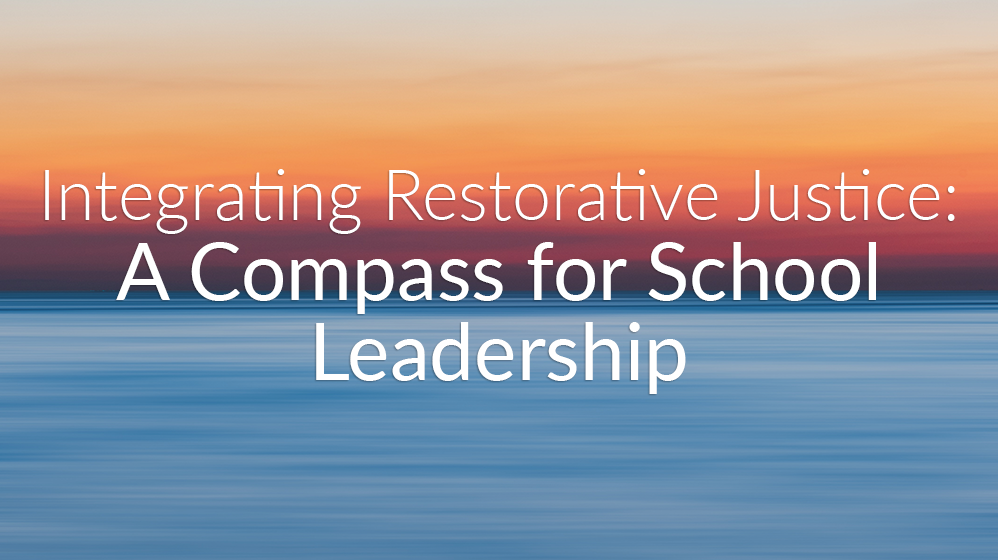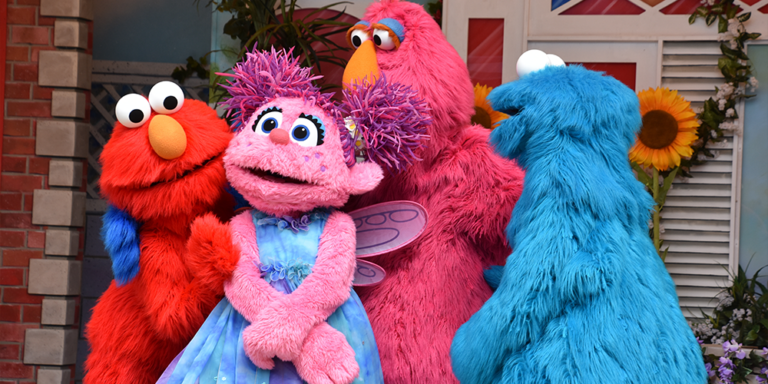I believe that for any given problem there are hundreds, even thousands, of possible solutions, and too often schools are where most of those solutions go to die. As an administrator, restorative justice (RJ) work has been a compass for creating unique, often nonconventional, solutions to the many challenges that arise in a school setting. It’s difficult to define restorative justice because it’s not a framework, or a set of tools to equip in case something goes wrong. RJ approaches can be a way to build and heal communities, or even a form of participatory democracy that moves beyond simple majority rules. For me, it is an invitation for dialogue and exploration (Zehr, 2015) that invites multiple stakeholders to share their voice. RJ is a compass that guides my work in the direction of growth, and I use the following 5 Pillars of Restorative Justice: Relationship, Responsibility, Respect, Repair, and Reintegration.
Relationship: Strong communities are created and maintained by strong connections
Relationships are the foundation of educational work. As educators we work in service to people, and the better we know people, the better we are able to serve people. During my time as a classroom teacher I found that my greatest asset was my ability to connect with students and their families even when I struggled pedagogically. Teaching elementary school meant that I was responsible for teaching all core content areas, and it didn’t take me long to realize that science was not my love language. Science was not my favorite subject as a student, and it most certainly was not my favorite subject to teach. Despite not being Mr. Ry the Science Guy, my students still seemed to be interested in learning from me, and it wasn’t because I was the best science teacher, but because they trusted me. The relationships and rapport I developed with my students and families allowed me to make mistakes and be received with grace and understanding. To this day my students call and visit me, and when they do, we don’t sit around talking about the mediocre lesson on clouds I taught. We talk about the pick-up football games at recess and the life lessons we each learned during our time together. Relationships matter!

What you can do tomorrow:
- Speak to someone you don’t often speak to
- Ask questions, and really listen
- Be honest
- Be vulnerable
Responsibility: We have to own our actions
Great teachers come in all shapes, sizes, colors, and I’ve had the pleasure of working with a number of effective teachers. When I think about what makes them great, it isn’t just what they do when they are standing in front of students, but it is the reflective work they do outside each class period. More specifically, what makes a great teacher is their ability to take responsibility for what happens in their classrooms. The same goes for school leaders. The most impactful leaders are those who assess what they have control over and take responsibility for impacting what’s in their control. We can’t control what experiences students have outside of school but can most certainly control what happens to them while in your school building. In addition, leaders own up to the mistakes they make, and actively seek out ways to correct them. I’ve made many mistakes as a school leader and I often don’t have control over how my mistakes make people feel, but I do have control over my response to those feelings and how I might repair potentially fractured relationships.
What you can do tomorrow:
- Apologize when you make a mistake
- Determine personal action steps for improvement
- Accept formal and informal feedback
- Use “I” statements to communicate
- Differentiate between intention and impact
Respect: All members of our community deserve to be valued
I don’t use the phrase, “treat everyone like you want to be treated,” because some of us struggle with our own self-esteem due to trauma and other life experiences. So when I say respect I mean, “treat people as though you value who they are and where they come from.” No matter who walks through the doors of your school building, they deserve to be treated with respect. When we value others it increases our capacity to listen and collaborate. This pillar is especially important because we often find ourselves serving students who are different from us racially, socioeconomically, and culturally. Seeing every member of our school communities as valuable, despite our differences, serves to only benefit us personally and professionally. Restorative justice is collaborative in nature, and respect lays the foundation for that collaboration.
What you can do tomorrow:
- Tell people “I appreciate you”
- Acknowledge the efforts of your staff
- Greet your staff and students regularly.
- Ask for feedback and input from community stakeholders

Repair: Identify the problem and collaborate to fix it
Too often, when something goes wrong, an incident occurs, or someone is harmed, we place a metaphorical “bandaid” on the problem and hope to move on. Unfortunately, that won’t work if we intend on building a culture of trust in our schools. Since there is no way to avoid incidents and conflict in our school, we need to make it a practice to seek ways to repair harm. Don’t know how to repair said harm? Restorative justice is about collaborating with those involved to create solutions to a problem. One standard solution, or effort to repair, will not work in every instance but when members of a community think critically, they are able to develop individualized solutions that everyone agrees upon. Particularly in instances of conflict, two people have the opportunity to take responsibility for their role in the conflict, and are also made responsible for the repair, as opposed to a designated mediator who determines the next steps.
What you can do tomorrow:
- Identify and explicitly state the problem
- Ask others to share solutions
- Include multiple stakeholders in the problem-solving process
Reintegration: We are all welcome here
All members of our school communities are welcome and deserve an opportunity to share space with each other. This “R” often applies to situations involving students who are suspended and/or removed from class due to behavior. When this happens, a student will return to class at some point, and if we don’t address how a student is reintegrated back into the community then we miss an opportunity to acknowledge the experience of those involved with the negative behavior. If a student is suspended from school I do my best to hold a meeting with the family to discuss a plan of return. This meeting often includes the student, parent, and teacher. I like to also frame this “R” as not just reintegration but integration. When I assess school programming I’ll ask myself who is not benefiting from this program? I’ll also ask who has been historically absent from our community? The next step is to develop initiatives focused on inclusion.
What you can do tomorrow:
- Meet with all stakeholders to create a return plan for students
- Create opportunities to welcome individuals/groups that have been historically excluded from your community
Restorative justice is my compass because in education there is no one day that is the same as another. Inevitably, there is going to be something that happens that we’ve never seen before. COVID-19 showed us that we have to be prepared for just about anything. I feel confident that you will be able to impact your community in a positive way if you remind yourself of the 5 pillars, whether you are a teacher, administrator, custodian, or superintendent.








